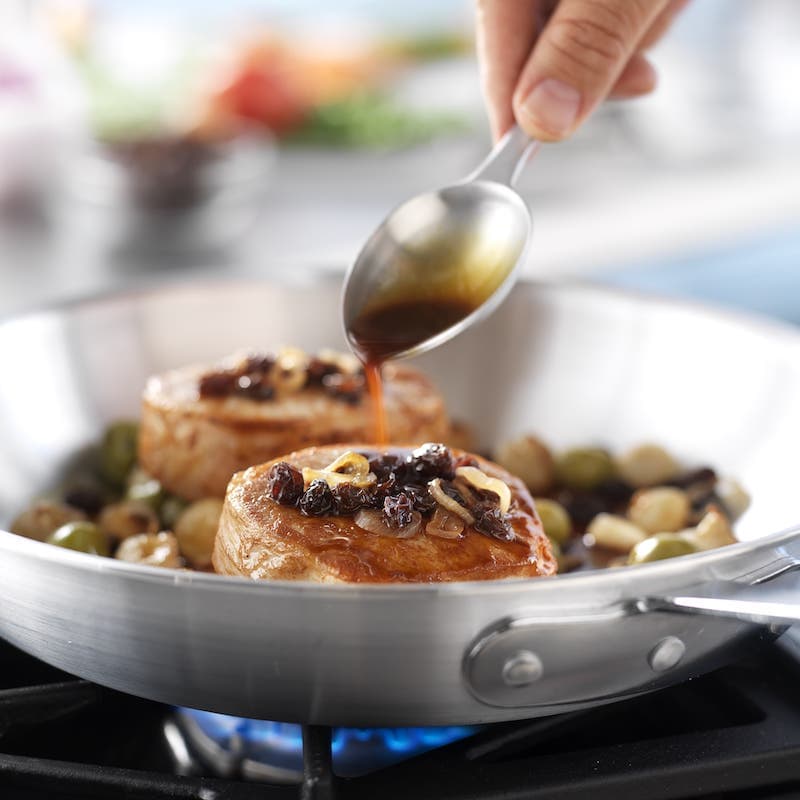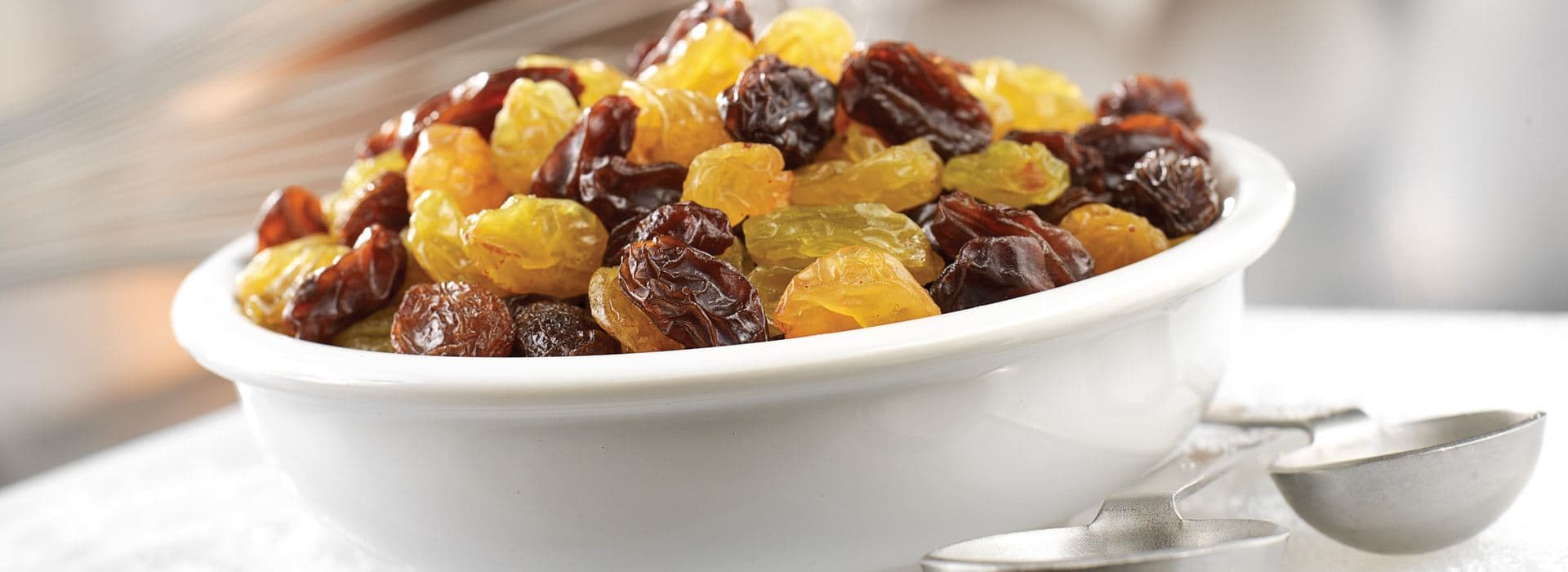The natural sweetness of California Raisins allows for reductions of the sugar levels in formulations, and their high water-binding capacity helps to retain moisture in bakery products. Based on their numerous attributes, raisins are adaptable to a variety of other manufactured products appealing to the growing market for health-conscious consumers.
Trade Materials
For more information about California Raisins, download our trade information package below:
Trade information package
Sourcing Raisins
For California Raisin product availability, download our packer list below:
Product Packer List
Webinar: The Business of Baking with Raisins
In October 2020, Dr. Klaus Tenbergen and Dr. Prisilla Santiago hosted a webinar on bringing the natural sweetness of California Raisins to commercial baking with the Bakers Journal. View it below:
Bakers Journal Webinar
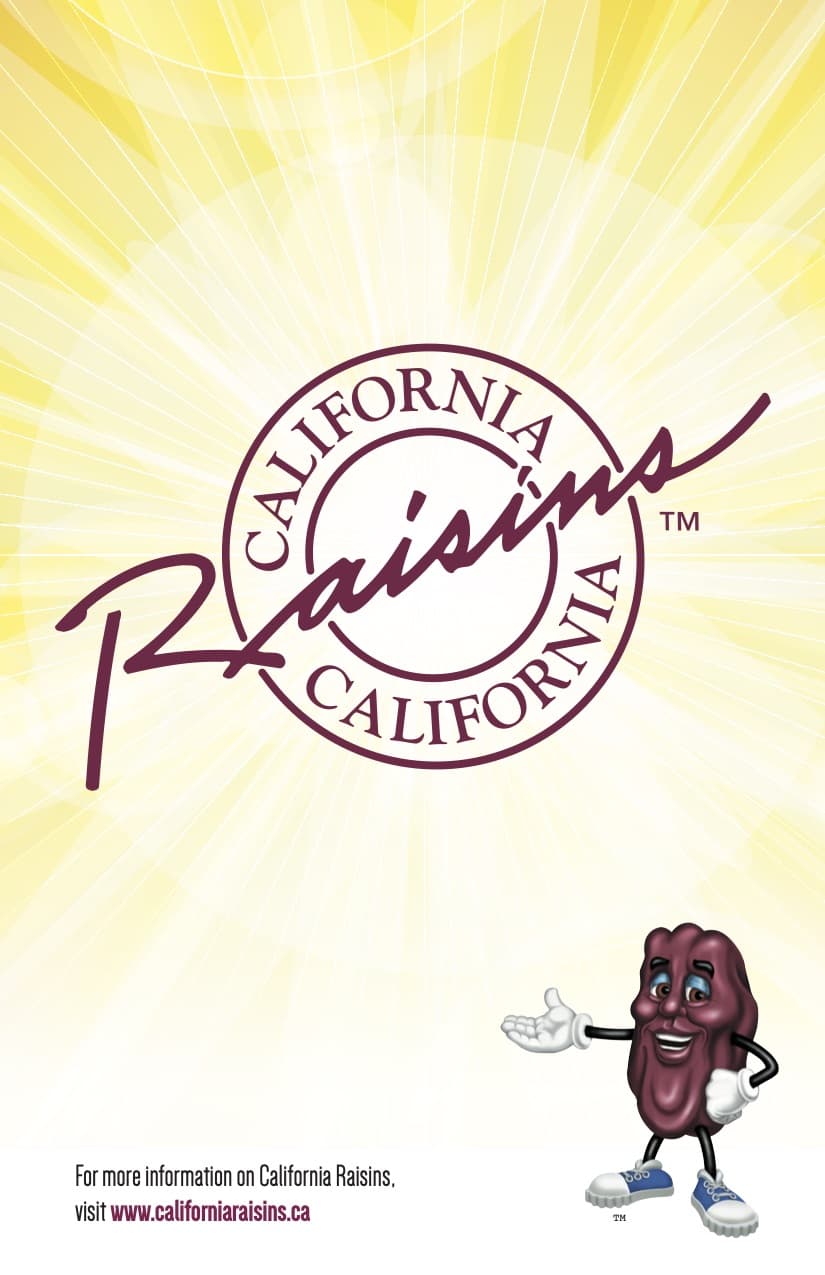
Baking
California Raisins in Professional Baking
California Raisins, a very traditional ingredient, are perfectly on-trend in the baking category for those consumers who want a wholly natural product. The ingredient list says it all: Raisins. Naturally dried in the sun and aside from a thorough washing and removal of stems, California Raisins can move from the field to your baked goods. Want to go green? Choose California Raisins.

Purchasing
The Right Raisin for the product
California Seedless Raisins are available in a variety of sizes appropriate for bakers. These include small raisins, select raisins, and jumbo raisins. Different packers have different terms to describe size but, for the most part, California Raisins are sized either by count per lb or kilo or by screen size. Specify screen size if a special size is important and integration throughout the product is required. Golden raisins, Zante currants and other dried grape varieties are also available for specialized applications. Contact a California Raisin Packer for more information.
California Raisins are shipped in poly-lined boxes. They are available in bulk packages of 13.6 kg (30 lbs) and other size cartons. This is ideal for purchase by a full container load of approximately 17 metric tons per 20-foot container, where 1,250 to 1,800 cases may be loaded depending on the carton size. California Raisins are available in a variety of snack and consumer packs, too. Most bakers purchase California Raisins in 25 or 30-lbs cases.
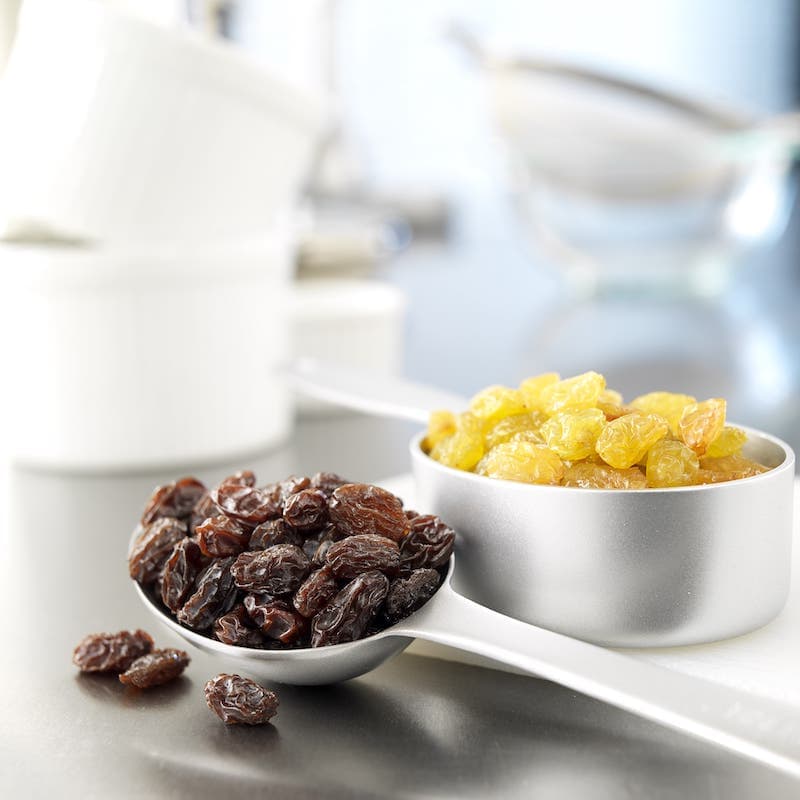
Food Processing
The California Raisin industry offers a variety of products that are suitable for both consumer and industrial usage. Most of the products offered are of the “Vitis vinifera” Natural Seedless varietal type and are typically dried by the sun, whether it is on paper trays or dried on the vine. Natural (Sun-Dried) seedless raisins include the Thompson seedless and other newer cultivars such as Selma Pete, Fiesta and DOVine. California Golden Seedless and California Dipped Seedless raisins are mechanically dried and processed. Other raisin varietal types include Zante Currant, Muscat, Monnuka, Sultana, and other Seedless. Raisins may also be further processed into Raisin Paste and Raisin Juice Concentrate.
California Raisins in Food Processing
California Raisins provide flavour, texture, and colour to a wide variety of products. Their natural sweetness allows for reductions of the sugar levels in formulations, and their high water binding capacity helps to retain moisture in bakery products. Based on their numerous attributes, raisins are adaptable to a variety of other manufactured products appealing to the new and growing market for health-conscious consumers.
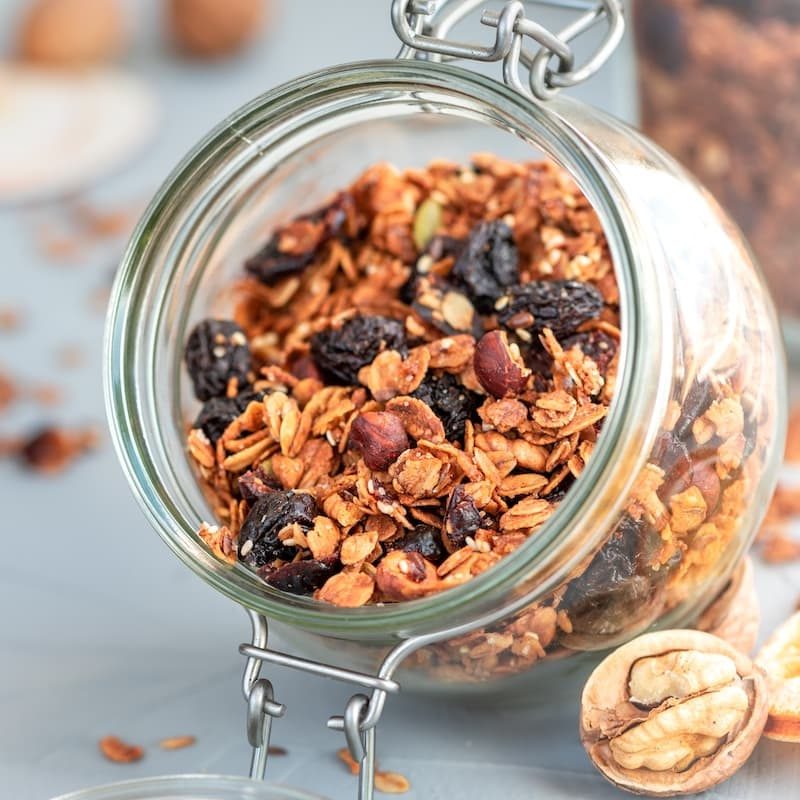
Confectionery
Did you know that chocolate-coated raisins have long been the number one selling food item at movie theatres in the USA? Decades ago, German confectioners perfected the aerodynamic science for applying a coating of chocolate to a raisin in a tumbling cylinder and a confectionery star was born. Chocolate-coated raisins were just the beginning as confectioners everywhere found that California Raisins work in applications from bars to truffles.
Confectionery FAQs
Q: Do oil coatings need to be declared on the ingredient statement?
A: No, they are a processing aid. Some of the more stable vegetable oils work best for panning, e.g., blends of coconut, cotton seed and other oils which may be blended according to conditions on the world oil market. Raisin packers may apply as much as 0.25 percent oil coating to raisins for confectionery applications.
Q: Are California raisins available with non-GMO oil?
A: Yes, suppliers will oil with non-GMO blends upon request.
Q: What is a confectionery raisin?
A: California Raisin packers have been selling to the candy industry worldwide for decades, and have developed special specifications for panners and other candy makers. These include oil coatings, special shapes and different sizes of raisins. Work with your California Raisin packer to obtain the right raisin for your product.
Q: Why should I use California Raisins?
A: Confectioners around the world, even those in other raisin growing countries, source raisins from California because of the firm skins, a result of sun drying. Sultanas, for example, are dried with an oil spray to accelerate drying, but at the same time, it softens the skin. The firm skin of the California Raisins holds up to the panning process and will not break to cause clumping which, in turn, can cause uneven distribution of coatings and bloom on chocolate.
Culinary
California Raisins are found in many foodservice kitchens and many chefs have discovered that California Raisins can help achieve a spectrum of subtle and balanced flavours from the deep and earthy to the highly aromatic. This ingredient has much more power to enhance existing dishes without adding another SKU to inventory and without increasing costs. California Raisins are the most economical, all-natural dried fruit available.
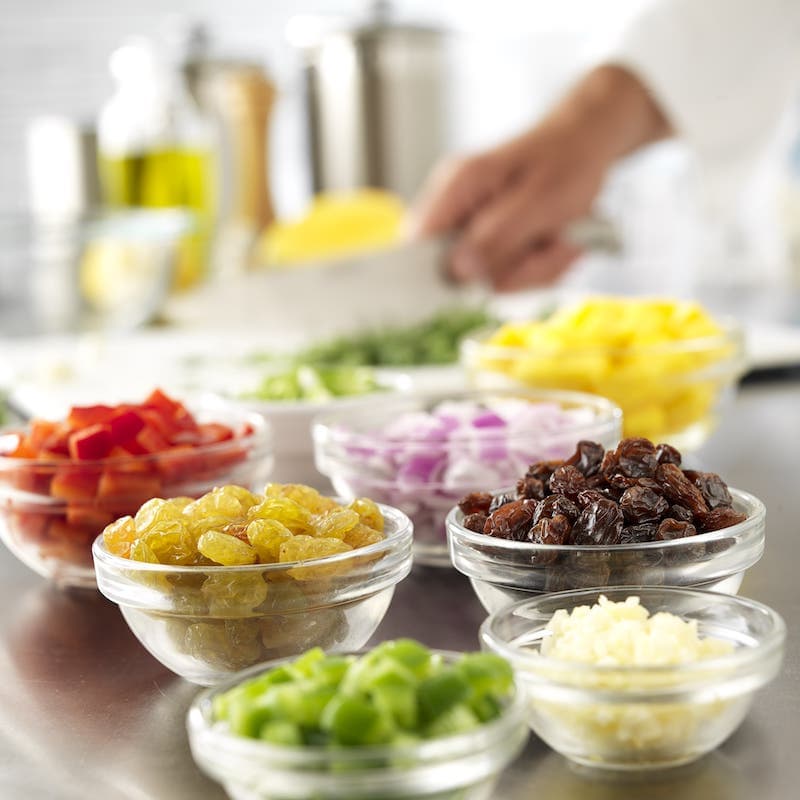
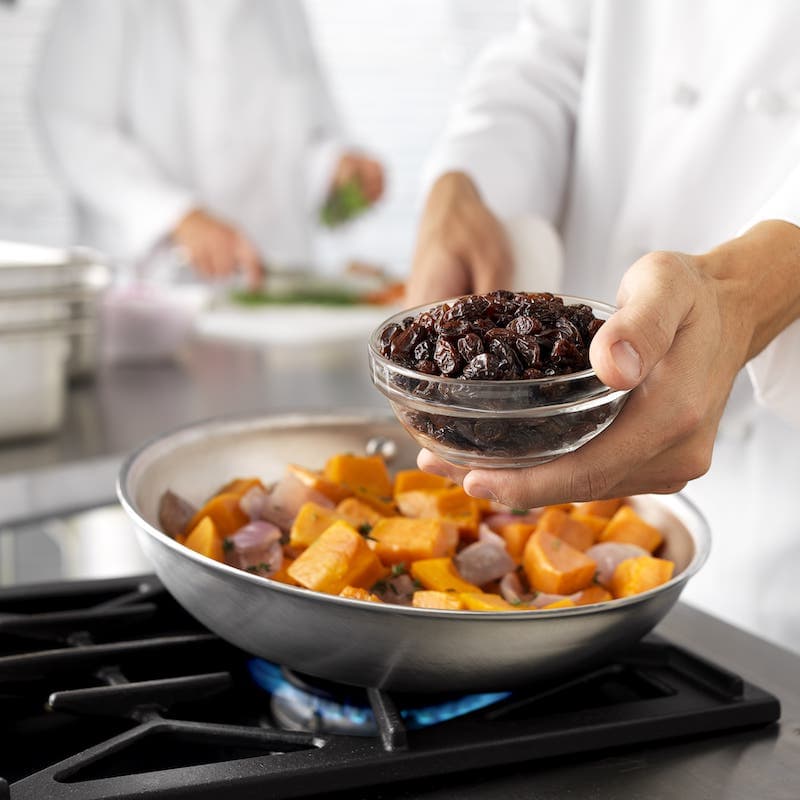
Whether used for their surprising flavour or to enhance and balance existing flavours of a dish, California Raisins are a great way to contribute taste in unexpected ways. When added to a dish that is traditionally simmered and/or pureed, such as a stew or sauce, California Raisins often take on a whole new flavour profile. Chefs are adding raisins to sauces, glazes, stir-frys, chutneys, and salsas to bring uniqueness and appeal to their dishes.
Raisins also have earned their place in such comfort foods like cheeseburgers, ice cream, French toast, scones, muffins, artisan and whole grain breads and rolls, as well as with oatmeal and dry cereals, and muesli. California Raisins are also finding their way into wraps and healthy snack bars, savory sauces, fruitful finishes, and Latin libations.
Functionality
Food technologists and chefs alike know that the versatility and functionality of California Raisins is absolutely unlimited.
Texture / Fat Replacement: California Raisins are plump, fresh tasting and have a soft “chew” that mimics fat and richness. Raisins act as a fat-replacer in baked goods without the addition of significant amounts of water and offer pleasant chewiness in a wide range of products. They are not gritty and typically free from large sugar crystals. California Raisins function well in fat-free baked goods, cookies and cakes.
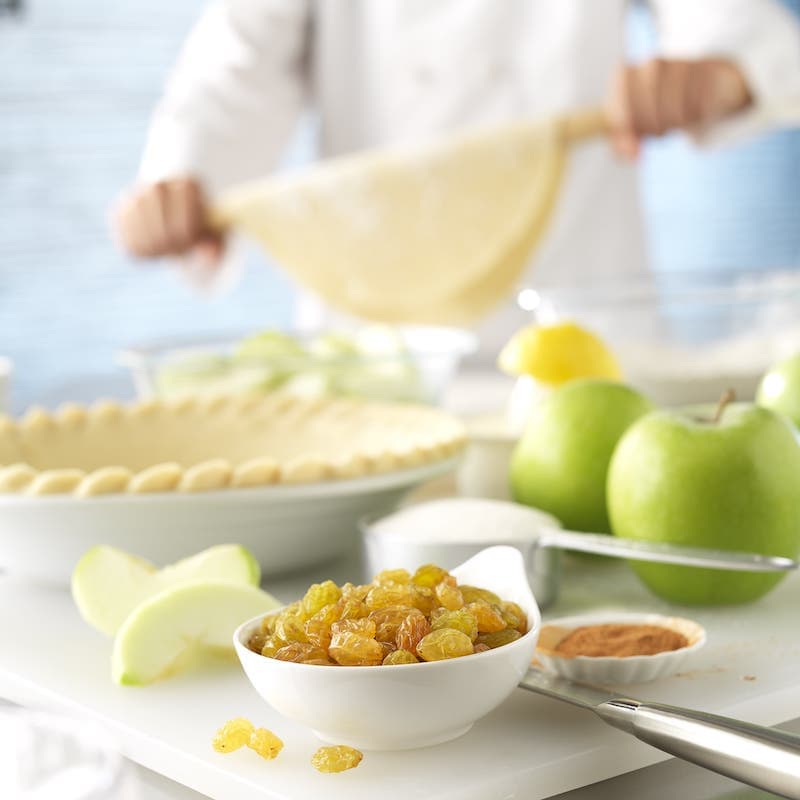
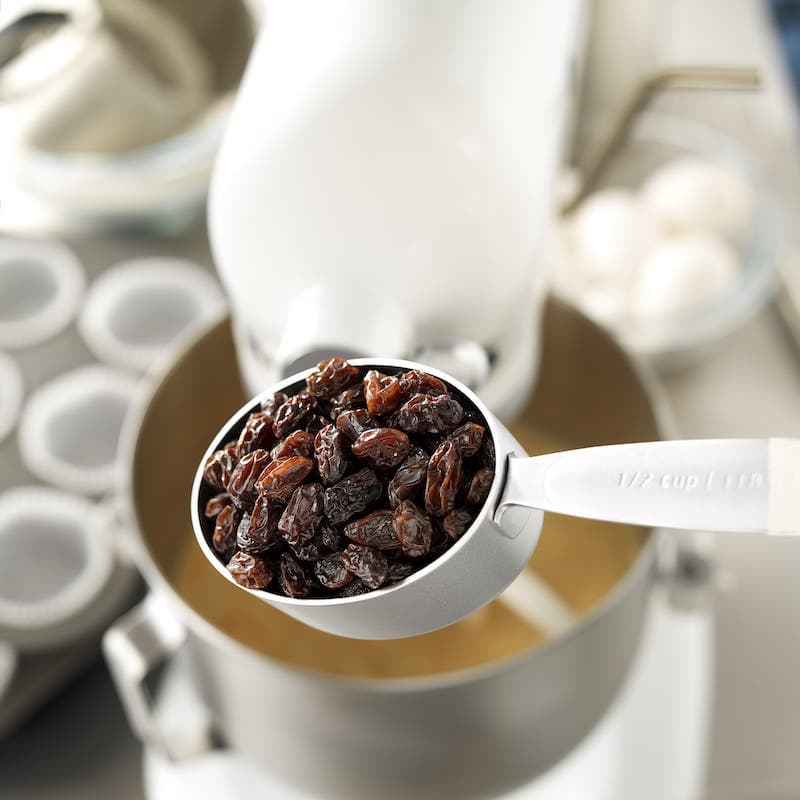
Texture and Skin Integrity: The skin of the California Raisin is not easily damaged by processing aids or by other processes. Therefore, raisins retain their shape and integrity during preparation. In fact, raisins plump during microwaving and baking, building volume and mouthfeel.
Binding: California Raisin sugars create a firm texture that can help bind dry ingredients in foods such as bars, snacks, cookies, desserts and other dishes.
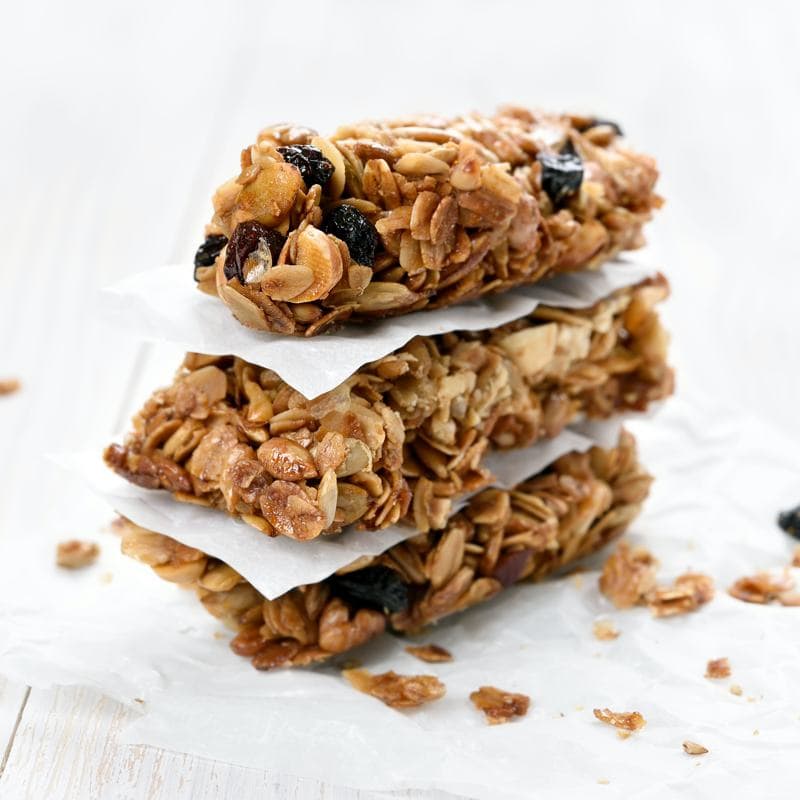
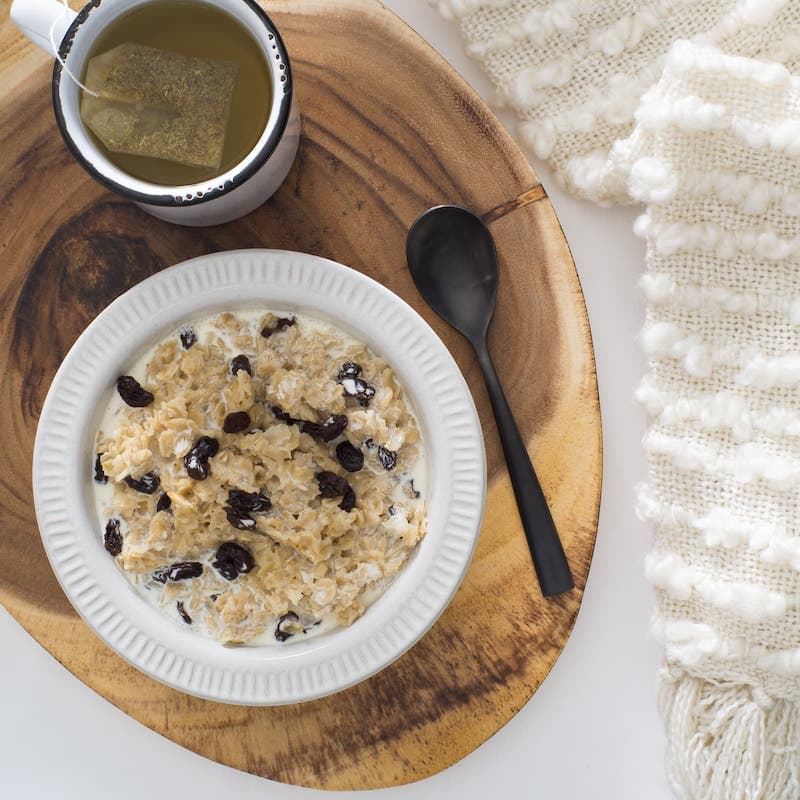
Water Activity: At the same moisture content, California Raisins generally have a lower water activity than other dried vine fruits because of their intact skin and fructose-glucose content. This prevents migration of moisture to or from ingredients in preparations and allows them to be added to recipes without concern for adding unneeded moisture.
Emulsifying: Raisins have a great emulsifying quality in vinaigrettes and other preparations. They can exhibit a rich earthiness that adds surprising character and depth to dishes that might include ancho or guajillo chile peppers.
